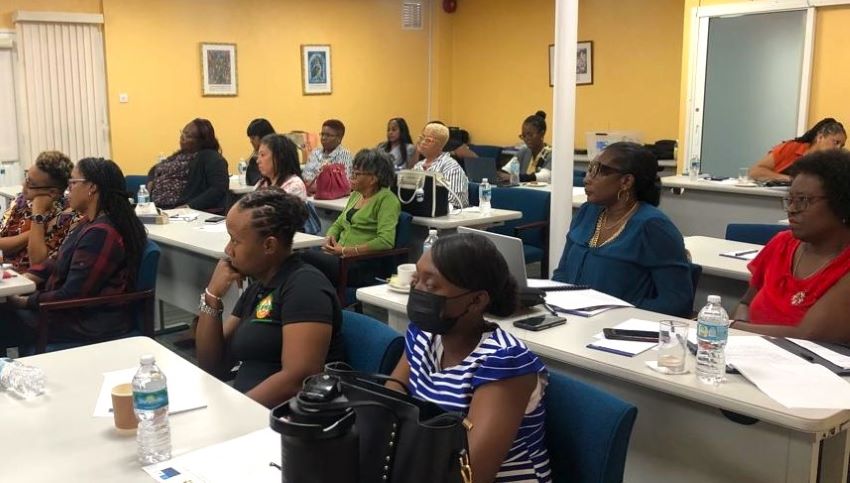
The archiving of documents, including those in audio-visual format, is important to the preservation of Barbados’ history and culture.
This was underscored during a training workshop on the ‘Digitization and Preservation of Historical Records’ held by the Division of Culture at the Shell Suite, Solutions Centre, The University of the West Indies UWI, Cave Hill Campus, yesterday.
Caribbean archaeologist and cultural heritage professional, Andrea Richards-Cummins, who is currently working with the Division of Culture as a Coordinator, stressed the importance and relevance of the workshop.
“When we talk about digitisation, for us that have collections and historical documents that were records, we talk about the process of creating a hard copy of a document into a soft copy. We use digitisation to create access, better access, for others and also as a need to safeguard our collections. Some of us here might think that our collections are not so historical but your documents will become historical records at some point and they are valuable to your country. So, this is why your presence here today is so important,” Ms. Richards-Cummins said.
The one-day workshop saw presentations from the Director of Cultural Policy and Research/Secretary General (UNESCO), Dr. Donna Greene-Rusnighi; Project Consultant, Dr. Shani Roper; and Archivist with the Barbados Archives Department, Karen Proverbs.
The presenters shared information on the relevance of archiving, reasons to value archival heritage, digitisation and preservation methods, good practices being utilised by institutions, and actions being taken for emergency planning.
It also included an on-site visit to the Barbados Archives Department, where participants received first-hand experience about the processes involved in digitising documents, including birth certificates, minutes from Parliament, and deeds. This involved visiting the big scanning, meta-data, and overhead camera rooms.
Representatives from the Barbados Defence Force, Barbados Museum and Historical Society, The Barbados Police Service, Central Bank of Barbados, the Barbados Government Information Service, the National Library Service, Parliament, The UWI, and the Barbados Archives Department participated in the workshop, and made presentations on the current status of archiving at their departments.
The workshop forms part of a larger project that the Prime Minister’s Office (Division of Culture) is currently implementing with funding from UNESCO’s 1954 Convention on the Protection of Cultural Property in the Event of Armed Conflict.
The title of the project is Strengthening and Protecting Barbados’ Cultural Property: The Digitization and Conservation of Slavery Records and Synergy with the ROAD Project.
The objectives of this project are to digitise select slavery records; support capacity building of national partners; and develop digitisation and preservation and emergency contingency planning good practices for historical records.
